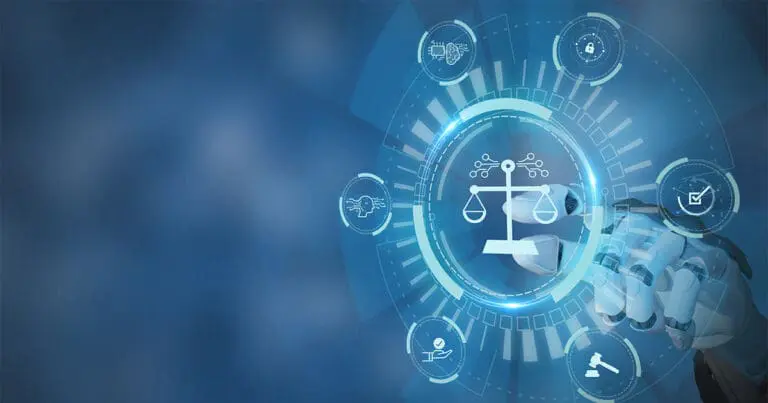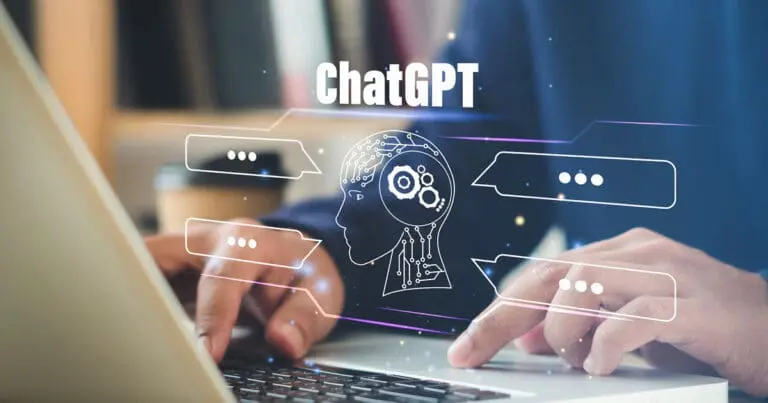Technology Ethics: Implications of Using Evolving Technologies

With the rapid pace of technological innovation and new technologies constantly being developed, it is essential to consider and discuss the implications of using these evolving technologies and the ethical considerations that come with them.
This is why it’s important to examine the ethical ramifications of utilizing advanced technologies and explore the potential benefits and possible detriments that can arise when we incorporate these advancements into our lives.
To better understand technology ethics, take a look at these specific examples of technology ethics concerns around utilizing today’s increasingly sophisticated technology.
What is technology ethics?
Technology ethics is the ethical consideration of how technology affects individuals, society, and the environment. It examines the implications of using new and emerging technologies, exploring how they may affect our lives both positively and negatively.
Technology ethics is an important concept to consider when utilizing any type of technology, as it helps us ensure our use of these technologies is fair, responsible, and beneficial.
Technology ethics is an ever-evolving field as new technologies are developed and old ones become more advanced.
As such, it’s important to continually evaluate the implications of using these new technologies and discuss how best to use them responsibly.
8 examples of technology ethics concerns
There are many examples of technology ethics concerns being raised that include the ethics of AI, facial recognition technology, robotics and automation, and blockchain technology.
- Technology ethics of AI
- Ethics in facial recognition
- Bioethics and Biotechnology
- Ethics in Cloud Technologies
- Ethics in the Internet of things (IoT)
- Ethics in robotics and automation
- Technology ethics of biometrics
- Ethics of blockchain technology
Technology ethics of AI
AI, or artificial intelligence, is a relatively new technology that has already begun to revolutionize many aspects of our lives.
When utilizing AI, some of the potential technology ethics concerns include privacy issues, algorithmic bias, data security and accuracy, misuse of personal data, and potential impact on labor markets.
It’s also important to consider how these technologies can be used responsibly and ethically in order to prevent misuse and abuse.
Ethics in facial recognition
Facial recognition technology is increasingly being used across the world to identify individuals, monitor activity, and even investigate crimes.
This powerful tool can lead to great benefits but it also carries some serious ethical concerns.
When considering the use of facial recognition technology, it’s important to consider the potential risks and ensure that safeguards are in place to protect civil rights and liberties.
Bioethics and Biotechnology
Biotechnology is a rapidly expanding field that has the potential to revolutionize many aspects of our lives.
As such, it’s essential to consider both the ethical implications of using this technology and the potential benefits that it offers.
Some of the questions to consider when examining bioethics include:
- Who should have access to biotechnology and for what purpose?
- What are the risks and benefits of utilizing biotechnology?
- How can we ensure that biotechnology is used responsibly and ethically?
- And, how will society be affected by the use of this technology?
Ethics in Cloud Technologies
The has become an integral part of our lives, offering us convenient access to data storage and computing power.
While these services are incredibly useful, they also carry some potential privacy and security concerns.
When considering the use of cloud technologies, it’s important to weigh the potential benefits of these services against the risks and ensure that appropriate security measures are in place.
Ethics around the Internet of things (IoT)
The Internet of Things (IoT) refers to a network of physical objects connected to the internet that can collect and exchange data.
This technology has opened up many new possibilities, but it also carries some ethical considerations.
When assessing the use of IoT technology, it’s important to consider how data is being collected and used, how secure this data is, and what potential impact this technology may have on our lives.
Ethics in robotics and automation
Robotics and automation are being increasingly used in many different industries and sectors.
While this technology can offer great benefits, it also carries some potential ethical concerns.
When utilizing robotics and automation, it’s important to consider how these technologies could potentially impact human employment, how they might be misused, and what safeguards are necessary to ensure responsible use of these technologies.
Technology ethics of biometrics
Biometrics are used to identify and verify individuals based on unique physical or behavioral characteristics. This technology is becoming increasingly popular, but it also carries some potential ethical risks.
When considering the use of biometrics, it’s important to consider how secure this data is, what type of information is being collected and stored, and how this data is being used.
Additionally, it’s important to consider the potential impact that this technology may have on civil liberties and privacy rights.
Ethics of blockchain technology
Blockchain technology is a powerful new innovation that has the potential to revolutionize many aspects of our lives.
When evaluating the use of blockchain technology, it’s important to consider how secure this data is, what type of information is being collected and stored, and how it may be used in the future.
Why is ethics in technology important?
Considering ethics in technology is important because of the human impact of technology, privacy and security implications, impacts on equity and justice, and the environmental impacts technology can have.
Human Impact of Technology
From automation potentially displacing millions of workers to algorithms influencing our decision-making, technology can have a profoundly positive or negative effect on people’s lives.
Privacy and Security
In a world where we are increasingly connected and our data is constantly being collected and stored, it’s essential to consider the potential privacy and security implications of this technology.
Equity and Social Justice
Technology can be used to create a more equitable and just society, or it can be used to entrench existing power dynamics.
It’s important to consider how technology is being used and what measures can be put in place to ensure that technology is used responsibly and ethically.
Accountability and Transparency
As technology becomes increasingly complex and powerful, it’s important to ensure that technology is accountable and transparent.
This means ensuring that the way these technologies are being used is clear and can be held accountable if something goes wrong.
Environmental impact of technology
Technology also has the potential to have a dramatic effect on our environment and ecosystems.
It’s important to consider the environmental impact of new technologies, such as energy use and emissions before they are adopted.
Future Preparedness
Given the rapidly evolving and changing nature of technology, it’s important to consider how technologies will evolve in the future and what safeguards need to be put in place.
Global Impact
Technology does not exist in a vacuum — it has implications for societies across the globe.
It’s important to consider how technology may have an impact on global society, and what measures should be taken to ensure responsible use.
Ethical Leadership
Ultimately, it’s the responsibility of leaders to ensure that technology is being used responsibly and ethically.
It’s important for leaders to understand the potential ethical implications of their decisions and take steps to ensure the responsible use of these technologies.
The future of technology ethics
Ultimately, ethics in technology is essential to ensure that the use of new technologies is beneficial to society and its citizens.
It helps to protect civil liberties and privacy rights while also fostering a culture of trust and innovation.
By considering the ethical implications of our technological advancements, we can ensure that these advances are used responsibly and with the best interests of all parties in mind.
Technology ethics will continue to be an important issue as technology advances and becomes more ubiquitous, so it’s essential to stay informed on the latest developments and ethical considerations associated with new technologies.
Looking to hire top-tier Tech, Digital Marketing, or Creative Talent? We can help.
Every year, Mondo helps to fill over 2,000 open positions nationwide.
More articles about hiring and industry trends:
- Big Tech Job Cuts Don’t Mean Demand for Tech Professionals Is Over
- Challenges Faced by the Banking Industry in the Digital Age
- The World of Robotics: Industries Leveraging Robotics Engineers
- How to Use Digital Transformation to Stay Ahead in the Manufacturing Industry
- Salesforce Admin Jobs to Hire to Get the Most Out of Your Investment
- Benefits of Digital Transformation in Healthcare with Examples
- HR Technology in Hiring: Streamlining Your Recruitment & Onboarding
- 4 Simple Resume Tips to Help You Hire Job Candidates Faster
- What Does a Recruiter Do & Who Do They Work For?



